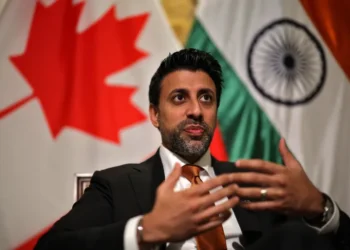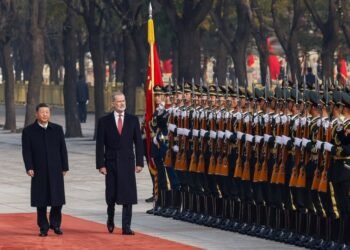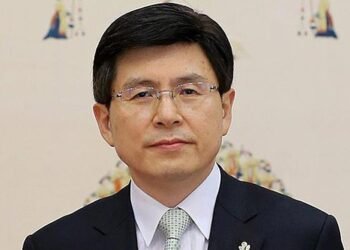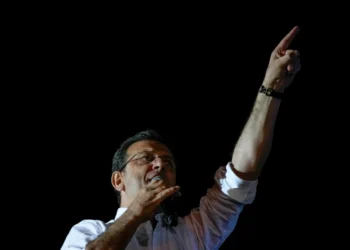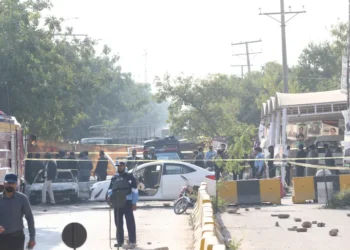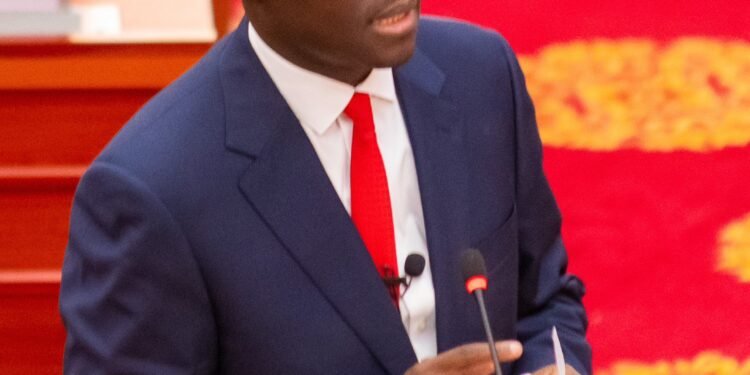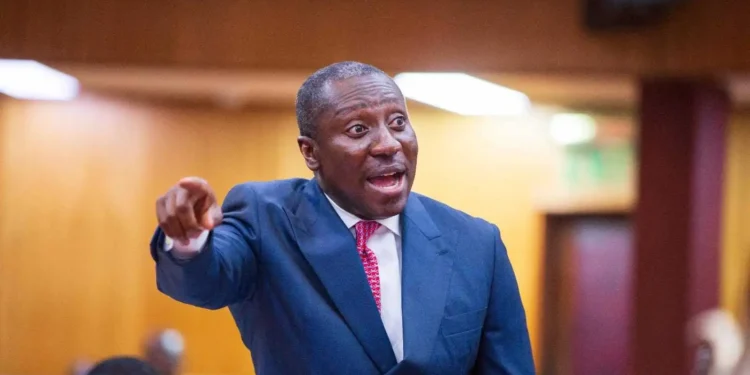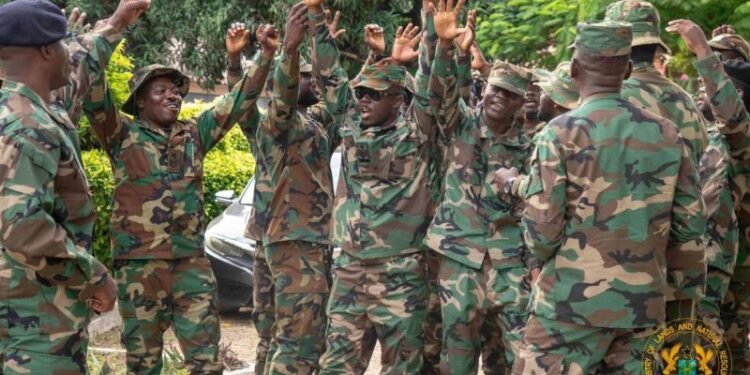William Lai Ching-te has been sworn in as President of Taiwan.
Lai and Vice President Hsia Bi-khim took their oaths in a ceremony at the presidential building in Taipei.
Lai was given two seals that symbolise presidential power from the parliament speaker: one was the ROC seal and the other, a seal of honour.
Both were brought to the island by the Nationalists in 1949 after they lost China’s civil war to the Communists.
Outgoing President, Tsai Ing-wen also bid farewell during the ceremony, signing off after eight years and a maximum two terms in office.
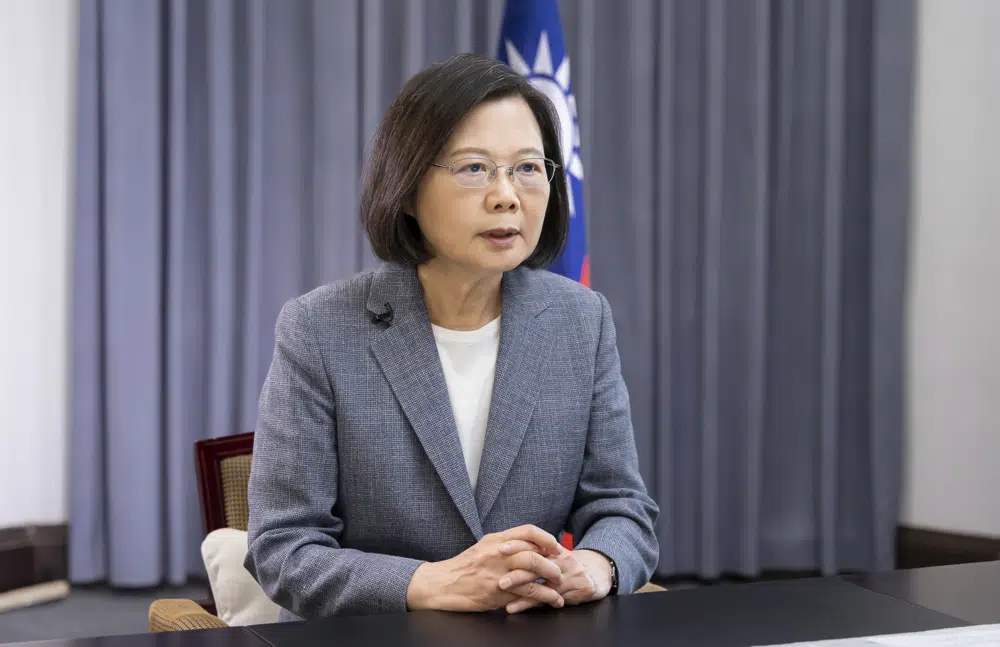
Representatives from 29 countries joined the ceremony, including those from Taiwan’s last 12 diplomatic allies in the Pacific, Central America and the Holy See.
Former United States Secretary of State, Mike Pompeo attended, as well as former Lithuanian President, Dalia Grybauskaite and representatives of foreign “economic” or “trade” offices that serve as de facto diplomatic missions for countries that maintain formal ties with Beijing.
As well as the dignitaries, members of the public and party supporters also turned out for the festivities, which included a military parade and traditional drum and dance performances, celebrating Taiwan’s cultural heritage.
US Secretary of State, Antony Blinken sent a message of congratulations.
Blinken said that Washington looked forward to working with Lai to “deepen our longstanding unofficial relationship, and maintain peace and stability across the Taiwan Strait.”
Lai Urges China To Stop Its Aggression Against Taiwan
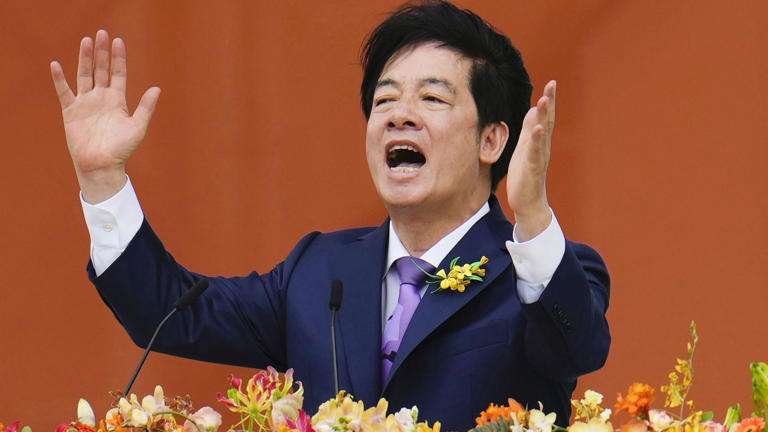
Addressing the crowds gathered at the presidential building, Lai stressed Taiwan would make no concessions on its democracy and freedoms and called on Beijing to “stop its aggression against Taiwan.”
He also urged China to strive to “maintain peace and stability in the Taiwan Strait and the region, ensuring the world is free from the fear of war.”
“Mutual benefits and prosperous coexistence would be common goals … I hope that China will face the reality of the ROC’s existence,” he said to applause.
Republic of China (ROC) is the formal name for Taiwan’s government.
“The future we decide is not just the future of our nation, but the future of the world,” he said.
Lai noted the significance of May 20 – the day in 1949 when martial law was imposed and also the day in 1997 when Taiwan’s first popularly-elected President was sworn into office, “signalling to the international community that the Republic of China, Taiwan, is a sovereign and independent nation with sovereignty resting in the people.”
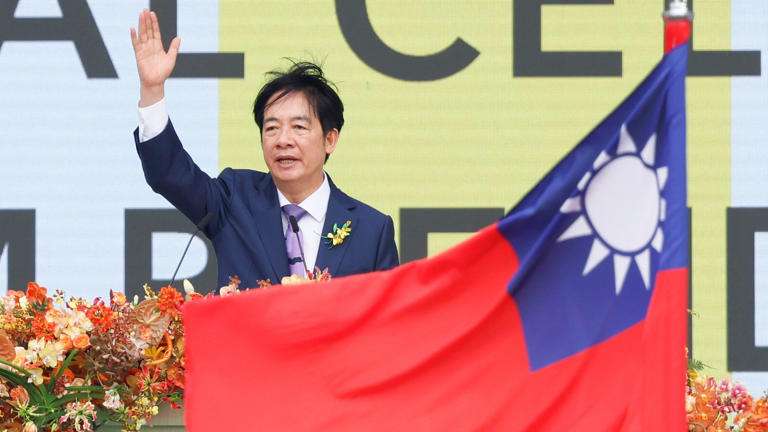
“I think it is apparent to us all, we have a nation so long as we have sovereignty. The Republic of China and the People’s Republic of China are not subordinate to each other.”
William Lai Ching-te
“No-one should entertain the idea of giving up political sovereignty in exchange for power,” he asserted.
Moreover, Lai warned Taiwanese citizens not to harbour delusions and to demonstrate their resolution in defending the nation.
“So long as China refuses to renounce the use of force against Taiwan, all of us in Taiwan ought to understand, that even if we accept the entirety of China’s position and give up our sovereignty, China’s ambition to annex Taiwan will not simply disappear.”
William Lai Ching-te
Beijing claims Taiwan as its own and has not ruled out the use of force to achieve its goals.
Throughout Tsai’s two terms in office, it sent military aircraft and ships near the island and has continued to do so since Lai, whom it considers a “separatist” and a “troublemaker” emerged the victor in January’s elections.
Lai disclosed that his government will concentrate on five key industries; semiconductors, AI, the military, security and surveillance, as well as next generation communications.
READ ALSO: Zelenskyy’s Extended Presidency, Pragmatic Necessity In Navigating Ukraine’s Choppy Waters




